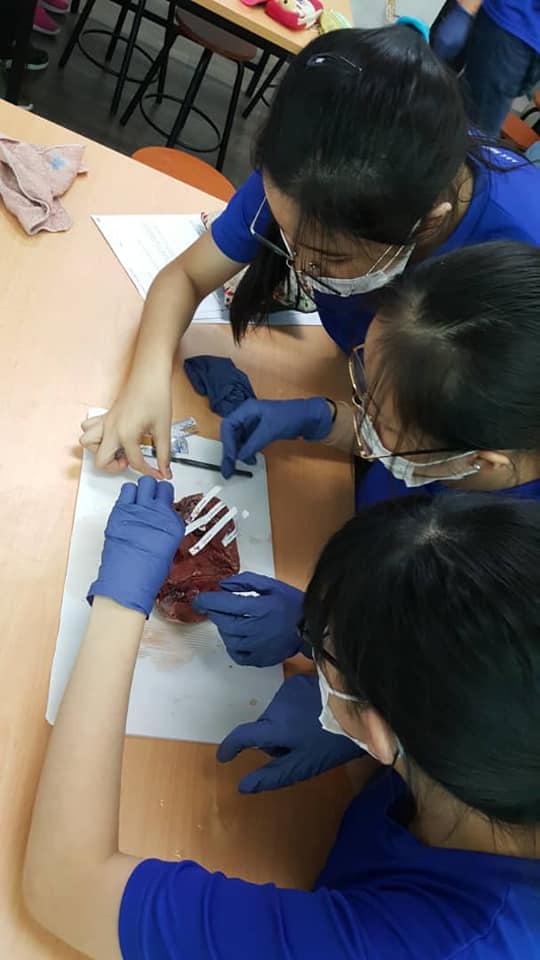Discover, Engage, Thrive :
Practical work in science can engage students, help them develop important skills, assist them in understanding the process of scientific investigation, and build up their understanding of concepts. Our science lab is equipped with basic but essential facilities to facilitate practical work such as experiments, demonstrations, discussions, peer teaching and simulations, all of which promote learning retention rates.

Animal’s Heart Dissection.
Students engaged in an in-depth exploration of the anatomy of an animal's heart, learning about the structure and function of each component. Through hands-on activities, they examined the heart's chambers, valves, and blood vessels, and used visual aids to accurately label each part. This interactive approach enhanced their understanding of cardiovascular systems and developed their skills in scientific observation and anatomical labeling.

Blast Off: DIY Rocket Launch Challenge
In this hands-on activity, students designed and built their own rockets using everyday materials, applying principles of aerodynamics and physics. They explored concepts like propulsion, thrust, and gravity before testing their designs in a live launch. Through this exciting challenge, students developed problem-solving skills, teamwork, and a deeper understanding of the science behind rocketry while experiencing the thrill of seeing their creations take flight.

Investigating Alcohol’s Effect on Daphnia
In this captivating hands-on experiment, students used Daphnia, a freshwater microcrustacean, to study the effects of alcohol on heart rate. Daphnia's transparent exoskeleton allowed easy observation of their internal organs under a microscope, making them an ideal model organism. Students measured the heart rates of these tiny creatures both before and after exposure to alcohol, gaining valuable insights into how substances affect living organisms. This activity offered a fascinating blend of biology and experimentation, deepening students' understanding of physiology and aquatic life.



Step into a world of hands-on discovery through experiential learning. Explore our site to uncover innovative programs, dedicated mentors, and immersive experiences that ignite curiosity and foster real-world skills.
International Primary & Secondary
国际小学与中学教育
© 2016 – 2025 Axcel International School. All Rights Reserved.